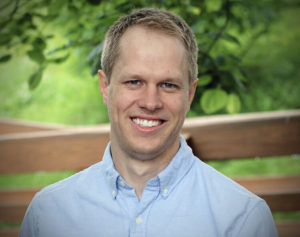The things that we’ve lost cannot always be replaced. When we grieve, we don’t have to immediately get back up on the horse, so to speak. It’s okay to sit in the dust, cry, hurt, and try to figure out why the world’s upside down. And, if you decide you don’t want to ride anymore, that’s okay too.
anoPhoto by whoislimos
When I was in high school, one of my least favorite books was Charles Dickens’ Great Expectations. In particular, I found the character of Miss Havisham to be deeply unsettling. Miss Havisham lives in a decaying mansion, desperately clinging to her past. Some time ago, she was left at the wedding altar. Since then, all she wears is her decrepit wedding dress. In her home, the wedding banquet still lays out on the table. Her clocks are stopped. The wedding cake is a ruin. Miss Havisham represented a terrible fate, one that horrified me as a young man – to be destroyed by life’s adversities.
Looking back on Charles Dickens’ work now, however, I can appreciate the character of Miss Havisham. She highlights an emotional reality that most of us feel but seldom acknowledge: we fear that if we allow ourselves to feel the brunt of our emotions, we will be consumed by them. We fear losing ourselves in the depths of our pains and losses. When we find ourselves in such places, the journey of grief lies before us. Grief is an inward journey of healing and overcoming that cannot be seen with the naked eye. It’s hard to recognize that journey. I think Miss Havisham is quite daring to portray her grief so publicly.
This year has given everyone plenty to grieve. Besides the complexity that we each face individually, our nation has been gripped by natural disasters, a once-in-a-generation pandemic that has altered daily life, racial tensions and protests, and political dissensions. As the year draws to a close, many are wary of what the holidays and New Year will bring. What does it mean to grieve any of what has happened?
To really grieve, our true feelings must be engaged. This means that, in a fundamental way, each person’s grieving process will look unique. However, there remain similarities, which serve as helpful signposts along the path. Most will be familiar with the notions of the stages of grief: shock, denial, anger, bargaining, depression, acceptance, and new beginnings. I know I’m cherry-picking here, but I’d like to visit with you the stage of grief that seemingly escaped Miss Havisham: Acceptance. Certainly the other stages, and your own unique process of grieving, are just as important to unpack.
I think there’s more to acceptance than we might initially believe. I’d imagine that most people would say that acceptance is the opposite of denial. And, in a way, I think there’s an element of truth to that – it’s important to be able to acknowledge the reality of what has happened, especially when we can both vent our subjective feelings and name the objective facts in a productive manner. But acknowledgement isn’t the same thing as acceptance.
Acceptance takes guts. Consider any loss you’ve suffered in life: a loved one, a child, a relationship, a pet, or a job, for instance. At first, the pain of the loss looms large. You might have questions that go unanswered. Suddenly things that were once pleasant and enjoyable become triggers, reminding you of the loss. You may feel depressed. The things that once brought joy may no longer do so. With care, intentionality, support, and patience, you’ll hopefully find yourself beginning to heal. The pain of the loss is still there, but it slowly becomes less overwhelming. You might even begin to recall past times with fondness.
Then comes a new chapter of difficulty, some new situation that picks at the scab of your grief. Circumstances come along that remind us of our loss, and we notice that we’re unable to see things as we once did. The newfound perspective feels burdensome, yet we find ourselves unable to cast it away lest we forget those we cherish. We face the dilemma of whether or not we can accept the possibility that life will remind us of our grief. And life has a way of bringing us many reminders.
For one reason or another, many families will have an empty seat at the holidays this year.
If you count yourself among that number, please hear: I’m so sorry. You’re not alone. Thank you for reading this. And, one last thing, I see your courage.
After a loss, at any point in the grieving process, it takes courage to celebrate a holiday. Or to go out on a date with someone new. Or to start looking for a new job. Or to celebrate the New Year. Or to do anything that causes heart-aching reminders. These events challenge our capacity to have hope, attachment, and security. When we’ve lost someone or something precious to us, it is natural to anticipate further loss. Once you’ve fallen off the horse, it’s impossible to ride again without seeing the possibility of another fall. It’s easy to love and relax when we are ignorant of the pain of loss. But because of our experiences, what once came easily no longer does so.
Let me be clear, I say this not to imply that there are always do-overs. So, no, you don’t have to re-marry, or go on another date, or try to make another friend. Nor is it sometimes even possible to do so. The things that we’ve lost cannot always be replaced. When we grieve, we don’t have to immediately get back up on the horse, so to speak. It’s okay to sit in the dust, cry, hurt, and try to figure out why the world’s upside down. And, if you decide you don’t want to ride anymore, that’s okay too. But, even should you decide not to ride again, I’ll promise you this – something else will come around that will trigger the same feeling, the same fear, the same hurt. The feelings of the loss will be triggered at things that seemingly have no direct correlation to the original loss. While we don’t have to return to the exact circumstances that hurt us, eventually we must confront the hurt itself.
So, celebrating Christmas and the New Year is a choice, though it may not feel like it. It is a choice to accept the possibility that difficult feelings, thoughts, and memories will arise because of our losses and grief, where there was once joy and peace. When we begin to discern the choices that we make to move forward despite the difficulty, we also begin to recognize the radical courage that is reshaping us.
Courage to risk another loss
Imagine Miss Havisham has finally decided to grieve her lost marriage. Perhaps she lets loose her anger and destroys the decaying wedding banquet, then collapses to the floor, weeping. She writes a letter to her fiance, finally giving word to her pent up feelings, then burns it and washes away the ashes. Bit by bit, she makes her house and herself anew. She acknowledges that her life didn’t turn out how she dreamed. She begins to make reappearances in the public eye.
But then one day, something new happens. A handsome, new suitor comes to court her. Suddenly, all those feelings she had nicely sorted out begin to quake. Echoes of that past loss reverberate. What if it happens again? How could she possibly love another? Maybe it’s just better for her to live her life alone. Indeed, she does not have to try again. Saying “no” can take an equal amount of courage, if not more, than saying “yes.” If she does say “yes,” hopefully she’ll recognize and accept that this new suitor comes at a price. She cannot unsee the dangers that were always there to begin with. But now she’s chosen to meet those risks, rather than avoid them, deny them, or resign herself to constantly reliving them. She has accepted that in order to obtain something she wants, then she must accept the very real possibility of another loss. When this choice is made in full light of the risks and rewards, produced by the journey of grieving and healing, we become more and more courageous.
Acceptance is not merely an acknowledgment and acceptance of past losses, it is also the acceptance of possible future grief as we move forward. Rather than the fear of further loss hampering us, we find ourselves aware of it, but not overcome by it. It’s another roll of the dice, in which we are fully aware of the risk of losing. But with acceptance, we come to the table prepared for loss, yet undiminished in our hope.
May God bless you and be with you in this Holiday Season,
Bryan “Rob” Kern, MA, LMHC
 Rob holds a Master’s degree in Clinical Mental Health Counseling from Grace College and Theological Seminary and a Bachelor’s degree in Psychology from Purdue University. He is a licensed mental health counselor (LMHC) in Indiana and currently practices at the Zionsville Cabin Counseling and Resource Center.
Rob holds a Master’s degree in Clinical Mental Health Counseling from Grace College and Theological Seminary and a Bachelor’s degree in Psychology from Purdue University. He is a licensed mental health counselor (LMHC) in Indiana and currently practices at the Zionsville Cabin Counseling and Resource Center.

